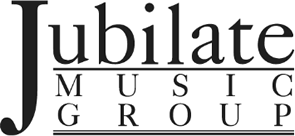By Mark Cabaniss
Years ago, I had the privilege of participating in a week-long choral arranging workshop led by legendary choral composer/arranger Alice Parker, held at Westminster Choir College in Princeton, New Jersey. That week spent with Ms. Parker had a tremendous impact on not only my own choral composing and arranging, but my eventual role as a publisher as well. Of the many wise and invaluable things she said to the class, one of several that resonated with me was when she said “There are good marshmallows and bad marshmallows.”
She wasn’t talking about looking at the expiration date on the marshmallow bag, of course (!). In this context, she was acknowledging that all choral pieces written and published can’t (and shouldn’t) be major works. Or even have tremendous weight textually and musically. There is clearly a need sometimes in large and small choirs’ repertoires for functional pieces that serve a variety of needs, some of which require the piece performed to be easy and/or quickly prepared. Those who conduct church choirs know that inevitably there will be those “slim Sundays” when, for whatever reason…be it weather, time of year, or a flu epidemic that shrinks your ranks…the director is in need of music that’s effortlessly rehearsed and presented. Plus, the busy time of preparation for an extended seasonal work often necessitates the need for some “sugarstick” anthems (as they’re sometimes called) that lighten the director and choir’s load. That’s to say nothing of the fact that most church choirs in the United States are the average size of 15-20 voices (especially nowadays). Those choirs are looking for “bread and butter” material that’s easily-prepared on a weekly basis (Sunday does come once a week, after all!), yet has a little “meat on the bones.”
Early in my publishing career, I realized that the so-called “pick-up” easy anthem book really meets those needs out there. But I also remembered Alice Parker’s “good marshmallow” analogy, and how if you’re going to write or perform such a piece (that is, an anthem that is lightweight textually and musically), then it should be a good one. Accordingly, whenever I’ve published a pick-up anthem book (and I’ve published several through the years), my goal has been to fill it with good marshmallows. The latest such collection I’ve published is titled “More Sunday Savers” (built on a previously best-selling series). You may click here to view a YouTube video of the digital reading session.
Let me hasten to add that I’m not suggesting a choir’s folder should be filled only with marshmallows, of course. If we serve our choirs a diet only of easy anthems, no growth will take place and they won’t get the musical nourishment they need and desire.
But again, the need for this “music in an instant” is evident. But what constitutes a solid choral anthem that’s easily prepared yet has some substance to it as well? Here are my Top 5 Ingredients that constitute a good marshmallow:
- Text. Textually, the anthem should say something in a theologically sound and fresh way, or use a timeless hymn text.
- Tune. The melody (and supportive harmony) should be singable without a lot of disjunct or surprising twists and turns.
- Vocal Scoring. The vocal scoring should follow traditional rules of voice leading. But the easy anthem in particular should not contain any surprising or moderately challenging voice leading that will consume a lot of rehearsal time.
- Length. The anthem shouldn’t be too long. Otherwise, you risk spending too much valuable rehearsal time on one anthem.
- Accompaniment. The accompaniment should be interesting, playable, and creative without being overly simplistic (and in a key that’s not full of chromaticism).
When you look at these criteria at a glance, it seems a no-brainer that these would be the requirements for an easy anthem. But I’ve found through the years to truly get all of these factors flowing together in a cohesive manner isn’t as easy as it looks. There also needs to be that final, hard-to-put-your-finger-on ingredient that says “This anthem is fresh and my choir and congregation will enjoy and be uplifted by it.” But when you do get all of these elements together, you’ve got a recipe for success when it comes to serving up good marshmallows to your crowd. Some of today’s worship styles (in my humble opinion) often applaud and live on bad musical marshmallows (whether the participants realize it or not…since if that’s all they’re served, they don’t know the difference). However, presenting solid choral anthems (even when time and resources may be short) that meet needs with well-crafted musicianship will help foster growing, vibrant choirs. And vibrant choirs can often be the fuel to grow churches. When blended with a balanced menu of more challenging selections, good marshmallows can supplement and create a wonderful choral worship experience. They’ll be consumed pleasantly, with no bitter aftertaste – or guilt!







